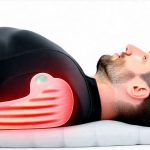Nausea is one of those universally unpleasant experiences – something almost everyone will encounter at some point in their lives. It’s rarely just the symptom either; it often comes bundled with other discomforts like vomiting, diarrhea, dizziness, and weakness. While a short-lived bout of nausea might be easily managed with simple remedies, persistent or severe nausea can be incredibly debilitating, impacting daily life significantly. The underlying causes are vast – from food poisoning and motion sickness to migraines, pregnancy, and even anxiety. Understanding why you’re nauseous is crucial for effective treatment, but often immediate relief focuses on managing the symptoms themselves, particularly dehydration which frequently accompanies vomiting or diarrhea.
Many people immediately reach for water when feeling unwell, and staying hydrated is certainly vital. However, simple water isn’t always enough, especially if fluids are being lost rapidly. That’s where electrolyte drinks come into play. Nausea often leads to a loss of essential electrolytes – sodium, potassium, magnesium, and chloride – which are critical for maintaining proper bodily functions. These aren’t just about hydration; they’re fundamental to nerve impulse transmission, muscle function, and fluid balance. Replenishing these lost electrolytes can help alleviate nausea symptoms and speed up recovery. It’s important to note that electrolyte drinks aren’t a cure-all, but rather a supportive element in the recovery process, best used alongside appropriate rest and addressing the root cause of the nausea if known. You might also find benefit from incorporating rest days into your routine to support healing.
Understanding Electrolytes and Nausea
Electrolytes are minerals carrying an electric charge when dissolved in body fluids like blood. They play a vital role in numerous bodily functions. – Sodium helps regulate fluid balance and nerve function. – Potassium is essential for muscle contractions, including those in your digestive system. – Magnesium supports muscle and nerve function, as well as energy production. – Chloride aids in maintaining proper pH levels and fluid balance. When you experience vomiting or diarrhea, these electrolytes are lost along with fluids, disrupting the delicate balance within your body. This disruption can actually worsen nausea, creating a vicious cycle where dehydration exacerbates symptoms. A lack of electrolytes can also lead to weakness, dizziness, muscle cramps, and even irregular heartbeat in severe cases.
The connection between electrolyte imbalance and nausea isn’t simply about replacing what’s lost; it’s about restoring proper physiological function. For example, low sodium levels can contribute to feelings of fatigue and lightheadedness, intensifying the sensation of nausea. Similarly, potassium deficiencies can disrupt digestive processes, making you feel even more unwell. Electrolyte drinks help restore this balance by providing a concentrated source of these essential minerals in a form that’s easier for your body to absorb than just drinking water alone. However, it’s crucial to choose electrolyte drinks wisely, as some contain high amounts of sugar or artificial ingredients which can potentially aggravate nausea in sensitive individuals. If nausea is related to digestive issues, consider exploring food logs to identify potential triggers.
The best approach isn’t necessarily chugging large quantities of an electrolyte drink all at once. Instead, small, frequent sips are generally more effective and better tolerated when your stomach is upset. This prevents overwhelming your digestive system and allows for gradual rehydration and electrolyte replenishment. Consider the source of your nausea as well; food poisoning might require a different approach than motion sickness or morning sickness, but in most cases, gentle electrolyte replenishment can provide significant relief. For some, incorporating gentle movement may also help ease discomfort.
Choosing the Right Electrolyte Drink
The market is flooded with electrolyte drink options, making it challenging to choose the right one. Commercial sports drinks often contain high levels of sugar and artificial colors, which aren’t ideal for someone experiencing nausea. Look for options specifically formulated for rehydration or oral rehydration solutions (ORS). These typically have a lower sugar content and are designed to be easily absorbed by the body. – Pedialyte is a well-known option originally developed for children but suitable for adults as well. – Many brands now offer electrolyte powders that can be mixed with water, allowing you to control the concentration and avoid unwanted additives. – Natural alternatives like coconut water contain electrolytes naturally, although they may not have the same concentration as dedicated rehydration solutions.
Beyond the ingredients list, consider your personal tolerance. Some people find certain flavors or sweeteners trigger their nausea, so it’s best to experiment with different options until you find one that works for you. Avoid drinks with carbonation, as bubbles can sometimes worsen nausea. If you’re unsure about a particular drink, start with a very small amount and see how your body reacts before consuming more. Homemade electrolyte solutions are also an option, but require careful preparation to ensure the correct balance of electrolytes. A simple recipe might include water, a pinch of salt, a squeeze of lemon juice, and a small amount of honey or maple syrup for taste. If you’re dealing with ongoing digestive issues, gentle broths can be soothing and supportive.
Hydration Strategies Beyond Electrolyte Drinks
While electrolyte drinks are incredibly helpful, they shouldn’t be the only hydration method you employ during nausea recovery. Plain water is still essential, but sip it slowly to avoid overwhelming your stomach. Other fluids that might be well-tolerated include clear broths (sodium content can be beneficial), herbal teas (ginger and peppermint tea are known for their anti-nausea properties), and diluted fruit juices (avoid citrus if sensitive). – Ginger ale is a classic remedy, but choose brands with real ginger rather than artificial flavoring.
A crucial aspect of hydration is understanding your individual needs. Factors like the severity of your nausea, the amount of fluid loss, and your overall health will influence how much fluid you need to consume. Pay attention to your body’s signals; if you feel thirsty, drink! If you’re unable to keep fluids down, try even smaller sips more frequently. Sometimes, simply sucking on ice chips can be a good way to stay hydrated without triggering vomiting. Remember that rehydration is a gradual process, and it may take time for your body to recover from fluid loss. For sensitive stomachs, bone broth can be an easily digestible source of nutrients.
When to Seek Medical Attention
While electrolyte drinks can provide relief for mild to moderate nausea, there are situations where seeking medical attention is crucial. If your nausea is severe, persistent (lasting more than 24-48 hours), or accompanied by other concerning symptoms like high fever, severe abdominal pain, blood in vomit, dizziness, confusion, or inability to keep down any fluids, seek immediate medical care. These could be signs of a more serious underlying condition. – Food poisoning can sometimes require specific treatment. – Certain medications may cause nausea as a side effect, requiring dosage adjustment or alternative medication. – Underlying medical conditions like migraines or gastrointestinal disorders may necessitate targeted therapy.
Don’t hesitate to consult your doctor if you’re concerned about your symptoms or have any questions about the best course of action. Electrolyte drinks are a supportive tool for recovery, but they aren’t a substitute for professional medical advice. Self-treating can be dangerous, especially when dealing with underlying health issues. Remember that this information is not intended to be a substitute for professional medical advice, diagnosis, or treatment. Always seek the advice of your physician or other qualified health provider with any questions you may have regarding a medical condition. Consider exploring acupressure for additional relief while consulting with a healthcare professional.


















